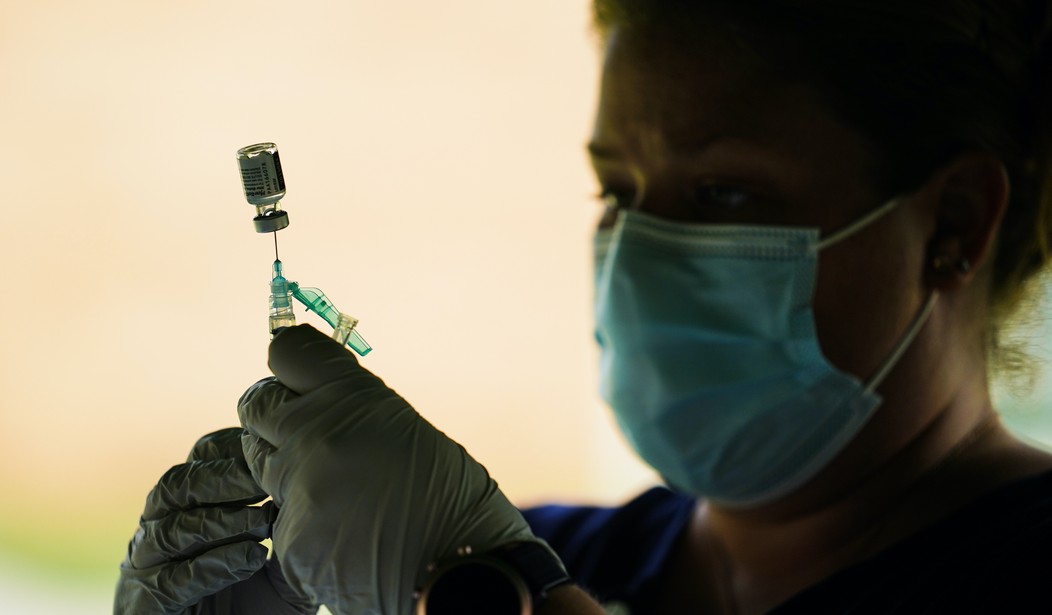Sorry to be a downer on the holiday but the degree of anxiety among scientists on social media today about this discovery makes it major news. Catch up on it now, as it’s apt to dominate COVID media coverage in the short term, if not longer.
The variant is called B.1.1.529. Only a few dozen cases have been confirmed so far but its genetic profile is sufficiently alarming to virologists that the WHO is meeting about it tomorrow. Just as B.1.617.2 became known to the world as Delta, B.1.1.529 is expected to be assigned the Greek letter Nu. For months, Delta crowded out all other variants globally because of its extreme transmissibility, outracing the viral competition by spreading to non-immune hosts before any other variant could get to them. But in one province of South Africa, it’s Delta that’s now being outraced.
When scientists took a close look at Nu, the variant that’s beating Delta, they found a shocking variety of mutations on the virus’s spike protein.
The B.1.1.529 variant has 32 mutations in the spike protein, the part of the virus that most vaccines use to prime the immune system against Covid. Mutations in the spike protein can affect the virus’s ability to infect cells and spread, but also make it harder for immune cells to attack the pathogen.
The variant was first spotted in Botswana, where three cases have now been sequenced. Six more have been confirmed in South Africa, and one in Hong Kong in a traveller returning from South Africa.
Dr Tom Peacock, a virologist at Imperial College London, posted details of the new variant on a genome-sharing website, noting that the “incredibly high amount of spike mutations suggest this could be of real concern”.
Peacock called the array of mutations on Nu’s spike protein “horrific” but noted that there’s no conclusive evidence yet that it’s more transmissible than Delta. A false alarm about a seemingly scary new variant — a “scariant” — would be nothing new during the pandemic. (Remember the New York and California variants?) Still, experts in the field are unusually alarmed by the early data from South Africa. This entire thread from a scientist at University College London is worth reading, but especially this:
Because of this increase, COVID sequencing has been concentrated on samples from Guateng.
Almost all recent samples from there (77) have been this new variant (blue dots) – taking over from a background of Delta (red) and C.1.2 (also a concerning variant, yellow). 4/16 pic.twitter.com/i5s4DJ8JT6
— Prof. Christina Pagel (@chrischirp) November 25, 2021
We do know that B.1.529 has many more mutations than other variants *and* has mutations seen in other variants that are associated with BOTH higher transmissibility AND immune escape.
It’s the number and type of mutations that are worrying the virologists & immunologists 10/16 pic.twitter.com/bzeuSmh1Nl
— Prof. Christina Pagel (@chrischirp) November 25, 2021
Read this thread too by Tulio de Oliveira, the head of South Africa’s Centre for Epidemic Response & innovation. Here’s the data he’s looking at:
Because this variant (B.1.1.529) can be detected by a normal qPCR due to deletion at Spike position 69-70 (like Alpha), it will make it easy for the world to track it. We estimate that 90% of the cases in Gauteng (at least 1000 a day are this variant, due to qPCR proxy testing) pic.twitter.com/QFU7javFA9
— Tulio de Oliveira (@Tuliodna) November 25, 2021
The first confirmed case of Nu was detected in Botswana just two weeks ago, according to the Guardian. Two weeks later, seemingly overnight, the variant has managed to become dominant in South Africa’s Gauteng province, achieving what no other strain of the virus had managed to achieve by outcompeting Delta.
A variant that’s much more contagious than Delta is bad news but not much of a threat in highly vaccinated countries — *if* the vaccines are effective against Nu. But what if they aren’t? The vaccines work by teaching your immune system to “recognize” the spike protein on the original coronavirus and to generate antibodies capable of destroying it. The less the spike protein on a new variant resembles the spike protein on the original virus, the less recognizable it’ll be to your body. Thanks to the gigantic number of mutations on Nu’s spike, it’s anyone’s guess whether the immune systems of vaccinated people will “recognize” it when infected. Which means Nu could turn out to be the variant scientists have worried about all year, the eventual “immune escape” strain that will render the vaccines meaningfully less effective.
According to one observer, more than a third of the confirmed Nu cases in South Africa have been found in vaccinated people:
B.1.1.529 Update:
South Africa uploaded more sequences into the GISAID database. The NICD samples also report back whether it was a vaccine breakthrough.
From the 19 NICD samples in total seven samples have the "vaccine breakthrough" mark.
— Gönndalf (@drallcome) November 25, 2021
Less than a month ago, the UK removed all countries from its so-called travel “red list,” part of Britain’s effort to learn to live with the virus in the age of endemic COVID. Citizens could travel freely internationally. Pagel is so disturbed by Nu’s potential to evade vaccine immunity, though, that she’s calling on the British government to put South Africa and its neighbors on the “red list” immediately. Are you listening, Joe Biden?
Banning travel from South Africa will slow Nu’s spread in the U.S. but it won’t stop it, especially since it has a two-week head start on scientists. What’s the long-term strategy against a variant that can evade the current vaccines? Simple: Update the vaccines. Pfizer and Moderna can’t do that literally overnight but their innovative mRNA technology means they can do it in a matter of a few months. They’ve already begun preparing for the moment when an “immune escape” variant pops up somewhere on the globe, in fact:
If an escape variant emerges, RNA vaccine makers such as Pfizer and Moderna could probably design and synthesize an initial prototype jab against it in a few days. Viral-vector vaccines, such as AstraZeneca’s, could follow closely behind…
But before these shots can be deployed, they will have to be tested in humans, and that will take time. So pharma companies are doing dry runs. Pfizer, with its partner BioNTech, based in Mainz, Germany, is testing a Beta-specific RNA vaccine in a randomized, placebo-controlled clinical trial with up to 930 participants. In August, the companies began a trial of a multivalent vaccine that targets both the Delta and Alpha variants.
“We’re not doing that because we actually think we need a new vaccine for those strains,” says Philip Dormitzer, vice-president and chief scientific officer of viral vaccines and mRNA at Pfizer, based in New York City. “We want to practise all aspects of executing a strain change — the preclinical research, the manufacturing, the clinical testing and the regulatory submissions — so that if we do see a variant out there that truly escapes vaccine immunity, we’re ready to go fast.”
In June, Pfizer’s CEO estimated that he could have an updated vaccine ready in 100 days. Hopefully the genetic sequence for Nu has already been handed off to scientists at his company and at Moderna and the engine is beginning to turn over.
Maybe a new vaccine won’t be necessary. One big piece of the puzzle that’s currently missing for Nu is data on whether it’s more virulent than Delta or less. Some viruses become less dangerous as they evolve; if it turns out that Nu is more capable of infecting people than Delta but (much) less likely to send them to the hospital then it may not threaten a crisis. Even a less virulent virus can produce a higher death toll depending upon how much more infectious it is, though. If Nu is one-tenth as deadly as Delta but infects 100 times as many people by evading immunity, it would generate 10 times the body count that Delta did. I hope Pfizer and Moderna aren’t taking the holiday weekend off.








Join the conversation as a VIP Member